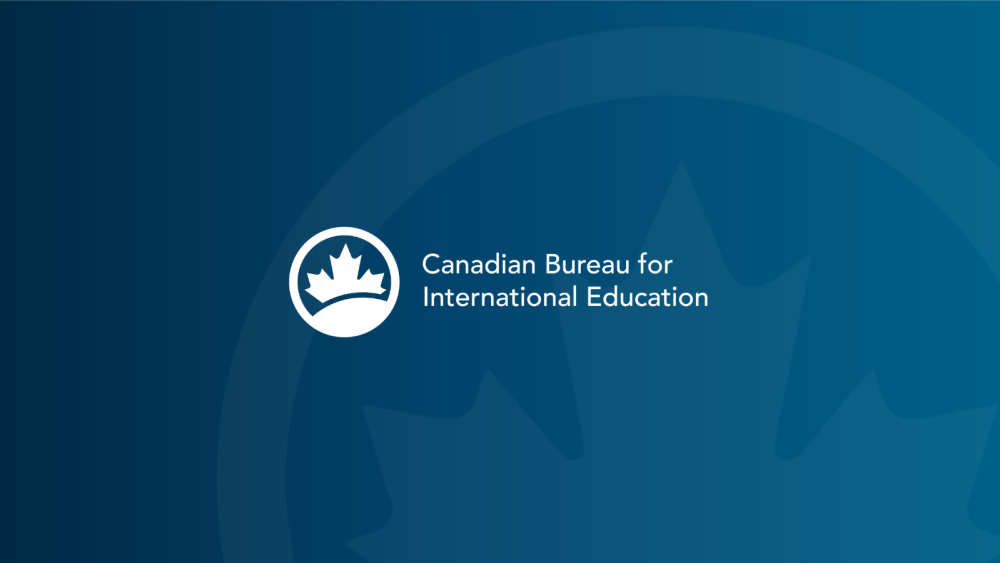Strengthening Canadian leadership in international education more important than ever as Ottawa resets economic, diplomatic ties around the world.
Canada has long been recognized globally for its high-quality education system, a reputation that has positioned international education as one of our nation’s most dynamic and valuable assets. This gives it a crucial role at a time when Prime Minister Mark Carney’s government has embarked on an urgent and historic campaign to reset this country’s diplomatic and economic ties with global partners.
International education contributed $37.3 billion to economic activities across Canada in 2022 (Economic impact of international education in Canada — 2022 update. Global Affairs Canada. https://www.international.gc.ca/education/report-rapport/impact-2022/index.aspx?lang=eng), which is more than the value of Canada’s exports in wood products. International students bolster local economies, support businesses and address critical labour market gaps across the country. They bring global perspectives and skills to our campuses and communities, driving innovation and cultural enrichment. Those who choose to stay contribute to Canada’s demographic and workforce needs. Those who return to their home countries become invaluable ambassadors for Canada, fostering future trade relationships and extending our global influence.
Despite these immense benefits, unprecedented and unregulated growth in the sector in recent years led to housing and other pressures that needed to be addressed. However, the policy response from the federal government over the past 20 months has led to a significant overcorrection. A series of unpredictable and abrupt policy changes have significantly eroded the trust of prospective international students. Canadian institutions are now facing staggering job losses, program and campus closures, resulting in fewer program offerings for Canadian students. Employers are also beginning to feel the impact of a reduced international student population in communities across the country.
The federal government’s International Education Strategy (IES) expired in 2024, and plans for a new iteration were abandoned following the substantive immigration policy changes. This has left a critical vacuum when Canada needs strong leadership. The global profile of EduCanada, our official brand for promoting Canada as a study destination, has been reduced. As a country, we have failed to communicate to the world what the immigration policy changes mean in relation to our continued desire to attract top global talent.
As a result, interest in studying in Canada has plummeted. Immigration, Refugees and Citizenship Canada (IRCC) data shows that new study permit applications dropped by 32 per cent between 2023 and 2024. Most concerning, the approval rate for new study permit applications in Q1 2025 fell to 33 per cent from 60 per cent in 2023. While Canadian institutions recognize the need for sustainable immigration levels, Canada is at risk of irreversible reputation damage – wherein we are unable to attract the top global talent we need to address critical labour market shortages and support our ambitious economic goals.
The federal government has anchored much of its plan to rebuild and strengthen the Canadian economy on rapidly expanding relations with allies in Europe, Asia and other regions. Reversing the factors undercutting the success of our international education sector is vital to the success of these international goals.
The Canadian Bureau for International Education has three recommendations for the Canadian government as it prepares its upcoming budget:
- Modernize and re-energize our promotion of Canada as an education destination for top talent by developing a new International Education Strategy and enhancing brand promotion to bolster Canada’s foreign policy and trade relationships.
- Create a national dialogue on international education to bring together federal, provincial, sector and industry leaders to guide a coherent and sustainable strategy for attracting top talent which aligns with Canada’s global diplomacy, economic growth and workforce objectives.
- Revamp our immigration processes to exceed global standards to allow for timely communication and predictability for International Student Program and Post-Graduation Work Permit program guidelines, changes and processing times; and strategically leverage these programs to bring in the talent Canada needs most.
Canada’s reputation as a welcoming and trusted destination for international students has been challenged, but with bold, collaborative leadership and a renewed effort to safeguard this strategic national asset, we can amplify the federal government’s mandate to build a strong national economy and navigate an increasingly dangerous and divided world.



Comments are closed.